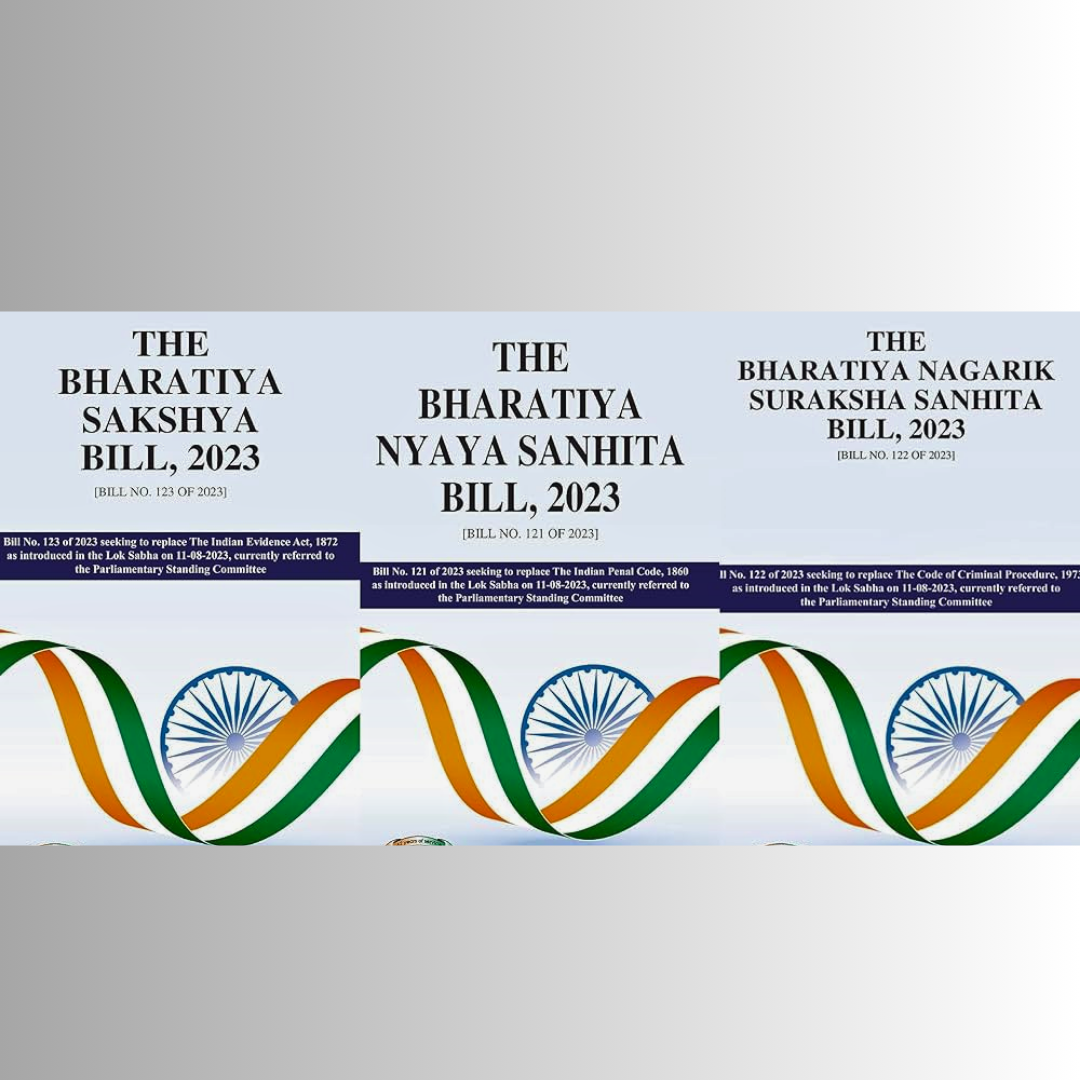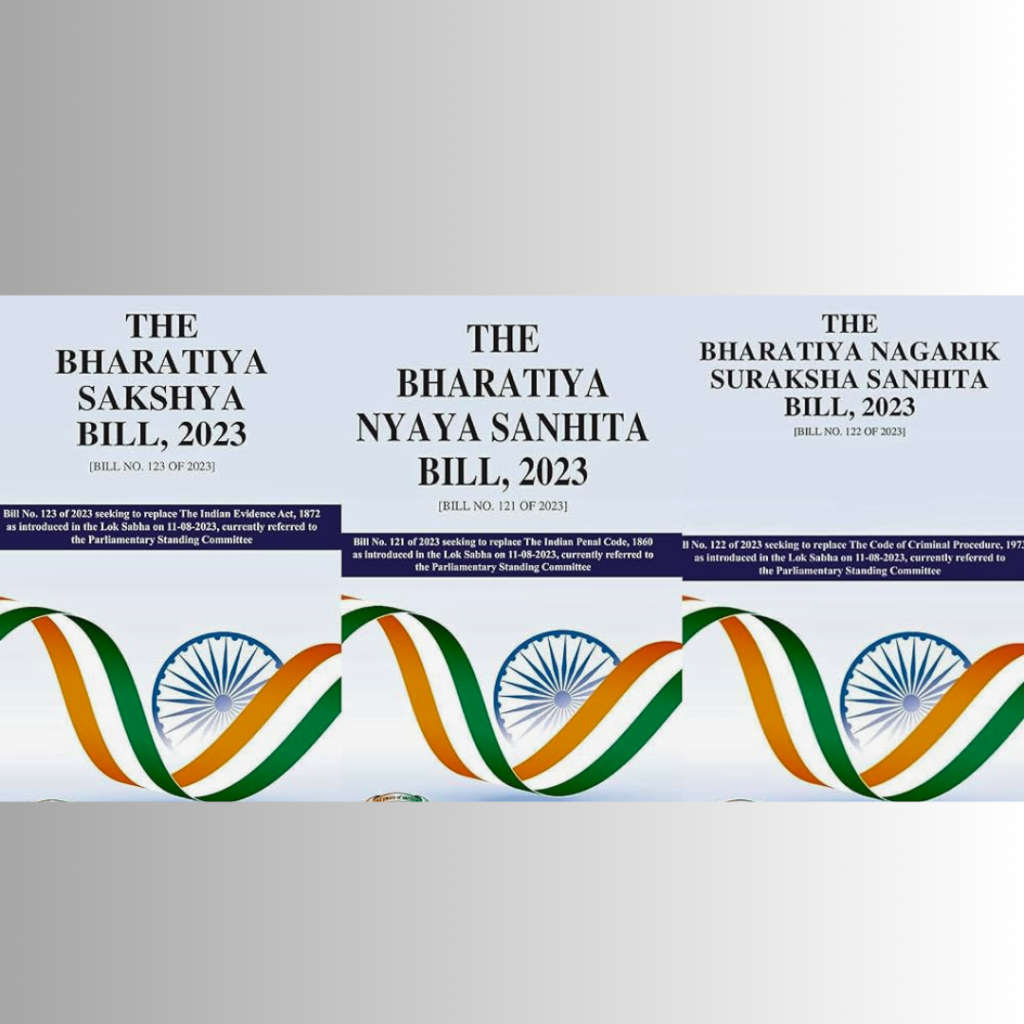

On December 12th, 2023, the Indian government took a significant step towards revamping the country’s criminal justice system. Union Home Minister Amit Shah introduced three revised criminal law bills in the Lok Sabha, aiming to replace the existing British-era laws with a more modern and efficient framework. These bills, if passed, will mark a major overhaul of the Indian Penal Code (IPC), the Code of Criminal Procedure (CrPC), and the Indian Evidence Act (IEA).
The Three Bills: A Brief Overview
Bharatiya Nyaya (Second) Sanhita Bill, 2023: This bill seeks to replace the Indian Penal Code, which dates back to 1860. The new code aims to address contemporary concerns like cybercrime, terrorism, and economic offences.
Bharatiya Nagarik Suraksha (Second) Sanhita, 2023: This bill replaces the Code of Criminal Procedure, which governs the investigation, prosecution, and trial of criminal cases. The new code aims to streamline the judicial process and ensure speedy trials.
Bharatiya Sakshya (Second) Bill, 2023: This bill replaces the Indian Evidence Act, which lays down the rules for presenting evidence in court. The new bill aims to make the process of gathering and presenting evidence more efficient and reliable.
Key Changes Introduced by the Bills
The revised bills propose several key changes, including:
Scrapping of the sedition law: The controversial sedition law, which has been criticized for its misuse, is proposed to be scrapped. Instead, a new offence of “offences against the State” is introduced.
Enhanced penalties for certain offences: The bills propose harsher punishments for crimes like terrorism, mob lynching, and sexual assault. For instance, mob lynching may be punishable by death in some cases.
Streamlined judicial process: The bills aim to reduce delays in the judicial process by introducing measures like fast-track courts for certain offences and stricter time limits for investigations and trials.
Improved evidence gathering: The bills propose changes to the rules of evidence to make it easier to gather and present electronic evidence and witness testimonies.
Concerns and Criticisms
While the revised bills have been welcomed by some, others have raised concerns about their potential impact.
Some key criticisms include:
Erosion of civil liberties: Critics argue that the increased penalties and stricter procedures could lead to the erosion of civil liberties and the misuse of power by law enforcement agencies.
Lack of transparency: The process of drafting the bills has been criticized for its lack of transparency and public consultation.
Potential for misuse: Some provisions, such as the new offence of “offences against the State,” are vague and could be misused to target dissent and criticism of the government.
The Road Ahead
The revised criminal law bills are currently being debated in the Parliament. It is still too early to say whether they will be passed in their current form or whether they will undergo further amendments. However, the introduction of these bills marks a significant step in the reform of India’s criminal justice system. It is important to have a thorough and open discussion about the proposed changes to ensure that they are in line with the principles of justice, fairness, and human rights.
Conclusion
The revision of India’s criminal law bills is a complex and important issue. There are both potential benefits and risks associated with the proposed changes. It is important to carefully consider all sides of the debate before forming an opinion. This blog post has provided a brief overview of the key changes introduced by the bills and some of the concerns that have been raised. I encourage you to do your own research and form your own informed opinion on this important issue.





